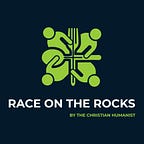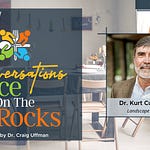The Holy Trinity: God, America, and King Cotton
The story most Americans learned about cotton goes something like this: Eli Whitney invented the cotton gin, the South grew a lot of cotton, and then we had a Civil War about slavery. It's a sanitized tale that glides over the most important part—how a plant became a theology that reshaped not just the American economy but American Christianity itself.
Long before "In God We Trust" appeared on our currency, Americans had already perfected the art of baptizing economic interests in religious language. And nowhere was this alchemy more transformative than in the cotton fields that stretched across the American South. As cotton became the oil of the 19th century—the commodity that powered global economics and politics—the theological innovations required to justify its production would transform Christianity from a faith centered on a poor, crucified Messiah into something altogether different: a gospel perfectly tailored to economic exploitation.
This isn't merely historical curiosity; it's autobiography. As a descendant of Louisiana enslavers who owned plantations in the notorious Bayou Boeuf region—an area that historian Solomon Northup described as having "no Sabbath in the slave fields"—I bear the direct inheritance of theological stories created to sanctify torture in service to agricultural productivity. The theological framework that justified my ancestors' actions wasn't just abstract doctrine; it was family inheritance passed down alongside silver and land.
The Fiber That Changed the World
Before we explore how cotton transformed theology, we need to understand how it transformed everything else. For most of human history, cotton clothing was a luxury. The process of removing seeds from cotton fiber (ginning) was so labor-intensive that cotton garments were reserved for the wealthy. The historian Yuval Noah Harari notes in Sapiens that before the Industrial Revolution, the average European owned perhaps two shirts in a lifetime. Not two shirts at a time—two shirts, total.
All this changed with two revolutionary developments: First, Eli Whitney's cotton gin multiplied human productivity in separating seeds from fiber by a factor of fifty. Second, British innovations like the spinning jenny, water frame, and power loom created unprecedented demand for raw cotton. Suddenly, an obscure plant became the essential commodity in a new global economy.
This cotton revolution created an economic opportunity of staggering proportions. American soil—particularly land seized from indigenous peoples across the Deep South—proved ideal for cotton cultivation. By 1850, American cotton production had increased over a thousandfold from pre-Revolutionary levels. Cotton exports accounted for 60% of American export value. A global industry employing millions of workers across multiple continents depended on American cotton production.
The parallel to modern global commodities is striking. Cotton transformed global power structures like oil would in the 20th century and like the rare earth minerals essential for smartphones do today. British textile factories needed American cotton like modern tech companies need Congolese cobalt—desperately, non-negotiably, at any human cost.
Importantly, cotton finance ultimately spawned a booming financial and manufacturing industry in New York, Philadelphia, Boston, and Chicago to finance commodities trade, meaning no American region or generation is innocent of plantation capitalism. As historian Sven Beckert documents in Empire of Cotton, the entire American economy became intertwined with the cotton trade, creating wealth far beyond the plantations themselves.
The First Theological Innovation: Redefining Humanity
But there was a problem. Cotton was extraordinarily labor-intensive. The same gin that made cotton processing efficient made cotton cultivation profitable at scales that demanded vast labor forces. The economics only worked with access to forced labor—enslaved people who could be compelled to work under conditions of extreme brutality.
Here's where theology enters the picture. Christianity, with its troublesome teachings about human equality before God and its emphasis on liberty in Christ, posed potential barriers to the cotton economy. Before cotton could transform the American economy, Christianity itself would need transformation.
This transformation began long before cotton's rise. As Willie James Jennings documents in The Christian Imagination, a profound theological shift happened in the 15th century when papal bulls fundamentally altered Christian understanding of human identity. Human worth, previously grounded in relationship to place and community, was replaced with a new framework based on utility to European commerce.
This theological shift created what Jennings calls a "racial scale of humanity"—a hierarchical system that categorized people according to their perceived proximity to European civilization. One's value was no longer rooted in bearing God's image but in one's usefulness to commerce. This new anthropology wasn't just a distortion of Christianity; it was a complete inversion, transforming a subversive faith founded on the radical equality of all people in Christ into a system that justified profound inequality.
The theological irony is breathtaking. Christianity began with the radical claim that in Christ, "there is neither Jew nor Greek, slave nor free" (Galatians 3:28). This revolutionary theological assertion appears not only in Galatians but also in similar forms in Colossians 3:11 and is practically demonstrated in Paul's letter to Philemon, where he urges a slave owner to receive his runaway slave "no longer as a slave but more than a slave, as a beloved brother" (Philemon 1:16). Yet by the time cotton became king, American Christianity had developed elaborate theological frameworks explaining why some image-bearers of God could be legally classified as property rather than persons.
And this wasn't limited just to African Americans. As J. Kameron Carter demonstrates in Race: A Theological Account, American Christianity developed a robust hierarchy of human value that shaped views of all non-Anglo Protestants. This hierarchy affected not only Black Americans but also Indigenous peoples, Asians, Latinos, Catholics, Jews, and even certain European immigrant groups like Italians, who were sometimes subjected to the same racial violence as African Americans in the late 19th century, particularly in the South.
Gods in Our Image: The Theology of Dominance
What happened to Christianity in the cotton states, northern financial centers, and the West's potential cotton lands offers a perfect case study of humanity's persistent tendency to create gods that legitimate our dominative schemes. The biblical writers were keenly aware of this tendency. The prophet Isaiah mockingly describes how people would cut down a tree, use part of it to cook their food, and then "from the rest he makes a god, his idol; he bows down to it and worships" (Isaiah 44:15-17). The psalmist observed that those who make idols "become like them" (Psalm 115:8)—a profound insight into how our gods and our social systems mirror and reinforce each other.
Cotton Christianity exemplified this dynamic. Facing economic demands that contradicted Jesus's teachings, cotton-dependent Christians didn't abandon faith—they reshaped it. They created a deity who conveniently blessed their economic arrangements, who sanctified exploitation, who placed white enslavers at the top of a divinely ordained hierarchy.
This pattern extends far beyond cotton fields. Political scientist Ivan Krastev offers a parallel observation about modern states: "Science was as important for the modern state as God was for the monarchical states of the past. The legitimacy of the state was coming from science." Just as cotton Christians created a deity who legitimated plantation economics, modern political ideologies create sources of legitimacy—whether scientific, religious, or cultural—that validate their power arrangements.
This pattern became even more pronounced as Cotton Christianity was transformed by Darwin and theories of natural selection that reinforced the hierarchy of human value as not only God-given but empirically confirmed by Science (and here we must capitalize Science when denoting it as a secular god). The supposed scientific validation of racial hierarchies provided an additional layer of legitimacy to theological frameworks that had already been developed to justify exploitation.
The insight from Cotton Evangelicalism is not merely historical. It reveals a fundamental human tendency: When our desires and practices contradict our professed values, we don't usually abandon our values—we reinterpret them. As John Calvin observed in his Institutes of the Christian Religion, "[M]an's nature, so to speak, is a perpetual factory of idols." This 16th century theologian recognized what Cotton Evangelicalism would later demonstrate on American shores—we continuously manufacture gods who bless what we've already decided to do. We create sources of authority that validate our predetermined conclusions, transforming our hearts and minds into workshops that endlessly produce idols tailored to our desires.
As theologian Stanley Hauerwas bluntly puts it: "The desperate need to have a god that underwrites our causes rather than a God who judges them" defines much of American religion. This explains why Christians could simultaneously proclaim a faith founded by a torture victim while theologically justifying the torture of others. It wasn't mere hypocrisy—it was the predictable outcome of creating a god in the image of economic necessity.
Supersessionism as Cotton's Theological Engine
This transformation required an additional theological innovation: the repurposing of supersessionism. Originally a dubious doctrine about the European church replacing Israel as God's covenant people, supersessionism was expanded to justify European domination over indigenous peoples and the enslavement of Africans.
Historian Edward E. Baptist documents in The Half Has Never Been Told how slaveholders developed a reading of scripture that portrayed enslavement as part of God's providential plan to "civilize" and "Christianize" Africans. Biblical narratives of the curse of Ham became central to this framework, providing theological cover for economic exploitation. The story of Canaan being cursed to servitude (Genesis 9:25-27) was transformed from an obscure biblical passage into a foundational text for American economic organization.
The theological gymnastics required here were remarkable. Scripture's isolated mentions of slavery (in vastly different cultural contexts) were elevated to divine endorsement, while Jesus's core teachings about human dignity, justice, and love were systematically marginalized. American Christianity developed what we might call a "cotton hermeneutic"—a method of biblical interpretation that consistently prioritized texts that could justify the cotton economy while downplaying those that challenged it.
Regional Christianities and Cotton's Theology
It's important to note that American Christianity didn't respond uniformly to cotton's demands. As historian David Hackett Fischer explains in Albion's Seed, distinct regional traditions developed divergent theological responses to slavery, largely shaped by their founding cultural values.
The New England Yankee tradition, with its Puritan emphasis on covenant community and moral accountability, produced theological resources for resistance to slavery. They drew on biblical passages like "he who kidnaps a man and sells him, or if he is found in his hand, shall surely be put to death" (Exodus 21:16) to oppose enslavement structures and practices. The Midland Quaker tradition, centered on the inner light present in all persons, led to early and principled abolitionist movements. These traditions maintained some degree of prophetic witness against slavery, though both were compromised by economic entanglements with the cotton trade.
By contrast, the Upper South Anglican tradition - predominantly Latitudinarian - adapted more easily to plantation hierarchy, finding theological justifications in biblical passages about servants and masters. But it was in the Deep South and Borderlands where Christianity underwent its most profound transformation, creating what we might call "Cotton Evangelicalism"—a faith perfectly aligned with plantation economics.
Stanley Hauerwas would recognize this pattern immediately: "The primary social task of the church," he writes, "is to be itself—that is, a people who have been formed by a story that provides them with the skills for negotiating the danger of this existence." The regional churches formed by stories of hierarchical order, racial superiority, and divine blessing on commerce developed precisely the "skills" needed to justify participation in cotton's brutal economy. This was not the Church but its regional mutations negotiating plantation capitalism's existence.
What's remarkable isn't just that different regions developed different theological responses, but how predictably these theological positions aligned with economic interests. Northern churches in states with textile factories dependent on Southern cotton found sophisticated theological justifications for maintaining economic relationships with slavery while nominally opposing it. Borderland churches in states transitioning from smallholder agriculture to plantation systems found theological justifications for precisely the economic transitions they were experiencing.
The pattern is striking: Rather than letting theology shape economics, economic necessity shaped theology. This pattern continues today: As Krastev observes about modern states, they have moved from meeting "needs" to validating "desires"—just as our religious frameworks often shift from challenging our desires to legitimating them.
The Plantation Pulpit: Theology in Service to Productivity
How did this cotton theology manifest in practice? Solomon Northup's account of his enslavement on Bayou Boeuf plantations (where my ancestors owned land) describes a Christianity nearly unrecognizable as the faith of Jesus. Worship services on plantations often focused on scriptural passages about servants obeying masters. Plantation preachers would emphasize texts like "Slaves, obey your earthly masters with respect and fear" (Ephesians 6:5) while conveniently ignoring the reciprocal commands to masters or Jesus's reading from Isaiah about "proclaiming freedom for the prisoners" (Luke 4:18).
Edward Baptist documents how enslavers on Bayou Boeuf plantations developed theological justifications for torture methods designed to increase cotton productivity. The brutal overseer who whipped enslaved people for failing to meet cotton quotas wasn't seen as violating Christian ethics but implementing them—a bizarre inversion of Jesus's command to "love your neighbor as yourself" (Matthew 22:39). Physical brutality was reimagined as spiritual discipline. Cotton production targets were framed as divine expectations. Violence against enslaved people was sanctified as necessary correction rather than condemned as sinful abuse.
This theological framework transformed local forms of Christianity from a faith centered on a God who liberates captives into one that specialized in creating spiritual justifications for captivity. The Jesus who proclaimed "good news to the poor" and "freedom for the prisoners" (Luke 4:18) was effectively replaced by a deity primarily concerned with cotton yields.
It's important to note that Christianity wasn't monolithic during this period. As philosopher Charles Taylor describes in his concept of the 'Nova Effect,' multiple competing versions of Christianity collided with each other, generating communities shaped not by Christianity as a cohesive whole but by variegated mutations. These mutations created theological frameworks that served different economic and social systems, leading to profound differences in how Christianity was understood and practiced.
Frederick Douglass offered one of the most powerful critiques of this theological perversion in his 1845 Narrative, where he distinguishes between "the christianity of this land" with its "revivals of religion" that leave the slave system intact, and the "Christianity of Christ" that would liberate the captives. As Douglass observes, "I love the pure, peaceable, and impartial Christianity of Christ: I therefore hate the corrupt, slaveholding, women-whipping, cradle-plundering, partial and hypocritical Christianity of this land."
Douglass didn't charge slaveholders with rejecting Christianity entirely, but rather with embracing a corrupted version that served their economic interests. The problem wasn't that slaveholders abandoned religion, but that they transformed it into something that removed its most challenging demands—a Christianity conveniently stripped of Jesus's teachings about human dignity, justice, and love.
Cotton Christianity didn't require rejecting Jesus—just redefining him to serve economic interests.
Theology and Manifest Destiny: Expanding Cotton's Empire
As cotton production depleted soil, constant territorial expansion became economically necessary. Here again, theology proved remarkably adaptable. The concept of Manifest Destiny—the belief that American expansion across the continent was divinely ordained—served cotton's economic demands by sanctifying territorial expansion and the displacement of indigenous peoples.
This theological framework drew selectively on biblical narratives of conquest while ignoring prophetic traditions of justice. The biblical command to "act justly, love mercy and walk humbly with your God" (Micah 6:8) was overshadowed by misappropriated conquest narratives from Joshua. Jesus's teaching that "blessed are the peacemakers" (Matthew 5:9) was conveniently set aside in favor of aggressive expansionism.
The Mexican-American War, fundamentally a war to expand cotton territory, was framed in theological terms as a crusade to spread "liberty" and "civilization." Protestant clergy overwhelmingly supported the war, developing theological frameworks that portrayed Catholic Mexico as spiritually inferior and thus rightfully subject to American conquest.
This war had profound consequences for Mexican citizens living in territories seized by the United States. As documented in Carrie Gibson's book El Norte, Californios and Tejanos (Mexican residents of California and Texas) faced systematic disenfranchisement during the antebellum period, when both territories negotiated statehood constitutions that stripped away their long-established property and citizenship rights. These constitutional provisions and early legal restrictions preceded and laid the groundwork for what would later evolve into full 'Juan Crow' laws and anti-Asian exclusion legislation after the passage of the 13th, 14th, and 15th Amendments. This legal progression demonstrates how the theological justifications for expansion created enduring structures of discrimination that affected multiple racial groups over generations.
By the time the Civil War erupted, the theological justifications for slavery developed in service to cotton had become so entrenched that they fueled a war framed not merely as an economic necessity but as a spiritual crusade. Confederate leaders explicitly described secession as a defense of divine order. Confederate clergy portrayed the struggle as a holy war to preserve God's intended social hierarchy.
This dynamic extended beyond the war itself into Reconstruction and the Jim Crow era. Italian immigrants in the late 19th century often faced racial violence in the South for refusing to abide by Jim Crow segregation laws. In 1891, eleven Italian Americans were lynched by a mob in New Orleans, and throughout the 1890s, a total of twenty Italians were lynched in the South as they navigated a racial status that was initially ambiguous within the Southern racial hierarchy. As Jonathan Tran documents in his work on racial capitalism, other ethnic groups like Asians and even certain European immigrants experienced similar racial categorization. This happened not just in the Jim Crow South but throughout the country, showing how the system of racial hierarchy extended beyond a simple Black-white binary.[10]
From Plantation to Platform: Modern Cotton Theologies
The theological distortions created to justify cotton exploitation didn't disappear after emancipation. Indeed, they hardened in the decades between 1880-1940, peaking in support of onerous 1924 immigration legislation and juriprudence as part of Warren Harding's America First policies. They evolved into new forms that continue to shape American religious and economic life today.
The prosperity gospel—with its emphasis on material blessing as evidence of divine favor—bears striking theological similarities to cotton Christianity's equation of economic success with divine approval. Both systems create theological frameworks that sanctify wealth accumulation while minimizing questions about how that wealth is produced. The apostle Paul warned against those who "think that godliness is a means to financial gain" (1 Timothy 6:5), yet prosperity theology often presents exactly this equation.
Contemporary defenses of extreme economic inequality often employ strikingly similar theological moves to those used by cotton evangelicals. The insistence that poverty results from moral failure rather than systemic injustice, the spiritualization of market forces as quasi-divine, the theological minimizing of Jesus's teachings about wealth—all echo patterns established during cotton's reign. The clear biblical command that "if anyone has material possessions and sees a brother or sister in need but has no pity on them, how can the love of God be in that person?" (1 John 3:17) becomes reinterpreted through the same hermeneutical gymnastics that cotton Christianity perfected.
This pattern has evolved into what scholars like Ruth Braunstein identify as Colorblind Judeo-Christian Nationalism that absolves citizens of 'racism' by justifying disparity on the basis of non-conformity to the Anglo-Protestant ethnotradition. This framework transforms the hierarchy of human value from overtly racial categories into cultural categories, maintaining the same hierarchical structure while using different language to justify it.[15]
Krastev identifies a parallel pattern in how modern states relate to citizens: "The classical trusted state of the 1930s in America under Roosevelt was based on the idea that it responded to and took care of human needs. But today, it must take care of human desires." Similarly, both Cotton Evangelicalism and its modern descendants transform faith from challenging human desires to legitimating them—creating theological systems that validate what we already want rather than calling us to transformation.
We've moved from Plantation Capitalism to Platform Capitalism, but many of the theological justifications remain remarkably similar. Just as cotton Christianity developed frameworks to explain why some image-bearers of God could be legally classified as property, modern economic theologies explain why some workers can be classified as "independent contractors" rather than employees deserving of benefits and protections.
Quinn Slobodian documents how much of this evolved through Chinese communism's innovation: capitalism stripped of democratic accountability by the force of a powerful state that creates legal "zones" where hierarchies are legally enshrined in the name of capitalism. Dubai has become the master of this model, and the elimination of ontological equality as an ongoing American commitment has emerged as a core tenet of the Trumpian revolution, rendering Anglo-Protestants victims of other citizens, and Americans victims of the world.
The irony is that perhaps the most enduring crop from cotton's golden age wasn't fiber but theology—frameworks for baptizing exploitation in religious language that continue to bear fruit today.
Confession and Repentance: Beyond Cotton's Theology
As a descendant of Louisiana enslavers, I carry both the inheritance of cotton's theology and the responsibility to confront it. The theological frameworks that justified my ancestors' participation in a brutal system were passed down through generations, often in subtle forms that continued to shape understanding of faith, race, and economics long after emancipation.
Confronting this inheritance requires more than historical awareness. It demands theological reckoning—recognizing how economic interests shaped religious understanding and committing to the difficult work of disentangling authentic faith from its cotton-era distortions. The biblical call to "examine yourselves to see whether you are in the faith" (2 Corinthians 13:5) requires us to examine not just individual belief but the theological frameworks we've inherited.
Hauerwas reminds us that "the first political task of the church is to be the church"—to embody an alternative community shaped by Jesus's teachings rather than economic expediency. This begins with confession—acknowledging how profoundly cotton reshaped American Christianity into something often unrecognizable as the faith of Jesus. As Psalm 51:6 puts it, "Surely you desire truth in the inner parts."
The theological tensions that shaped cotton Christianity continue today. The fundamental question remains: Will our theology be shaped by the crucified Christ who stands with the exploited, or will it be tailored to justify the economic arrangements that benefit us? Will we follow the Jesus who said "blessed are you who are poor, for yours is the kingdom of God" (Luke 6:20), or will we continue to refashion him to fit our economic interests?
Cotton's gospel promised prosperity through exploitation. The authentic gospel calls us to find abundant life through self-giving love. Jesus stated the choice plainly: "No one can serve two masters... You cannot serve both God and money" (Matthew 6:24). We cannot serve both.
Key Terms
Cotton Evangelicalism: A distinct form of American Christianity that developed theological frameworks to justify and sanctify cotton production dependent on enslaved labor, characterized by selective biblical interpretation and the subordination of Jesus's ethical teachings to economic imperatives. Full entry →
Plantation Capitalism: Economic system that commodified both land and labor to maximize production of export crops like cotton, characterized by violent extraction of wealth, racial hierarchy, and theological justification of exploitation. Full entry →
Platform Capitalism: Contemporary economic system that digitally mediates labor relationships while minimizing worker protections and benefits, often employing similar theological justifications to plantation capitalism despite its technological veneer. Full entry →
Cotton Hermeneutic: Method of biblical interpretation that selectively prioritizes texts that justify economic exploitation while marginalizing passages emphasizing justice, equality, and liberation; developed to reconcile Christian theology with the cotton economy's dependence on slavery. Full entry →
Plantation Preacher: Religious authority figure who developed and propagated theological frameworks justifying slavery and plantation economics, characterized by selective biblical teaching that emphasized submission while ignoring liberation themes in scripture. Full entry →
Related Content
Notes
[1] Willie James Jennings, The Christian Imagination: Theology and the Origins of Race (New Haven: Yale University Press, 2010), 58-59.
[2] David Hackett Fischer, Albion's Seed: Four British Folkways in America (New York: Oxford University Press, 1989), 410-418.
[3] Edward E. Baptist, The Half Has Never Been Told: Slavery and the Making of American Capitalism (New York: Basic Books, 2016), 102-105.
[4] Solomon Northup, Twelve Years a Slave (Auburn: Derby and Miller, 1853), 163-165.
[5] Stanley Hauerwas, The Peaceable Kingdom: A Primer in Christian Ethics (Notre Dame: University of Notre Dame Press, 1983), 99-100.
[6] Yuval Noah Harari, Sapiens: A Brief History of Humankind (New York: Harper, 2015), 328-330.
[7] Sven Beckert, Empire of Cotton: A Global History (New York: Knopf, 2014), 102-105.
[8] J. Kameron Carter, Race: A Theological Account (New York: Oxford University Press, 2008), 157-193.
[9] Frederick Douglass, Narrative of the Life of Frederick Douglass, an American Slave (Boston: Anti-Slavery Office, 1845), 118.
[10] Jonathan Tran, Asian Americans and the Spirit of Racial Capitalism (New York: Oxford University Press, 2021), 45-67.
[11] Carrie Gibson, El Norte: The Epic and Forgotten Story of Hispanic North America (New York: Grove Atlantic, 2019), 245-268.
[12] Ivan Krastev, interview on "The Good Fight" podcast with Yascha Mounk, "Ivan Krastev on American Decline," January 2025.
[13] Quinn Slobodian, Globalists: The End of Empire and the Birth of Neoliberalism (Cambridge: Harvard University Press, 2018), 187-213.
[14] Uffman, Craig, and Kevin Boyle. "How and Why We Birthed Jim Crow," and “Jim Crow: The Yankee Variant”, Conversations: Race on the Rocks. Christian Humanist Mission, 2024.
[15] Braunstein, Ruth. "The 'Right' History: Religion, Race, and Nostalgic Stories of Christian America." Religions 12, no. 2 (January 30, 2021): 95. https://doi.org/10.3390/rel12020095.



















